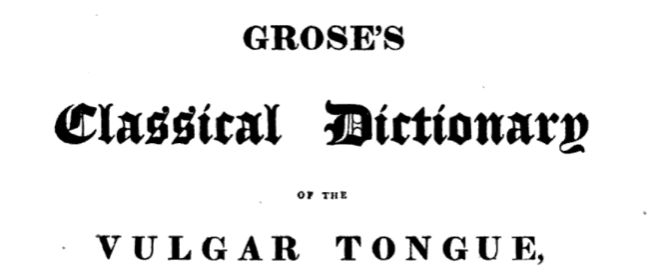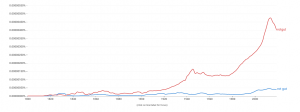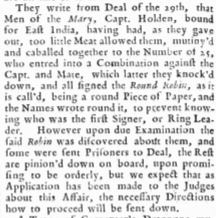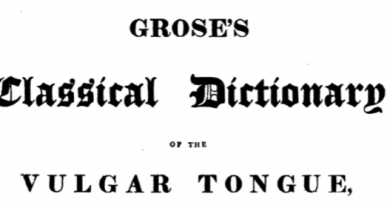Dictionary of the Vulgar Tongue – Day 293, 294 and 295
The Dictionary of the Vulgar Tongue was first published at the end of the eighteenth century, and given that the current health crisis is giving too much time to read books, I thought I’d pick a daily word from it until I got bored…. And to catch up after getting behind with these posts, and because I’m getting towards the end of the book, I’m doing three days at once now. How lovely….
Rot Gut
I like the drinking definitions that Grose comes up with, this one is “small beer; called beer-a-bumble – will burst one’s guts before it will make one tumble”. The phrase has been used since at least the late sixteenth century and initially was made with reference to beer, but it later evolved into also meaning wine, whisky and anything vaguely alcoholic. The phrase was also used during the Prohibition period in the United States, where it’s fair to say that the standards of alcoholic drinks fell somewhat.
The Google Ngram of how “rotgut” and “rot gut” have been used over the last century, having become more commonly used in recent decades.
Round Robin
This is another phrase that I hadn’t realised had such a long etymological heritage, being defined by Grose as “a mode of signing remonstrances practised by sailors on board the king’s ships, wherein their names are written in a circle, so that it cannot be discovered who first signed it, or was, in other words, the ringleader”.
The phrase was in use from as early as the middle of the sixteenth century, but the word origins are lost. There’s a theory, which seems to be the most common, that it derives from the French “ruban rond”, when petitions were allegedly signed on a round ribbon. That suggestion doesn’t seem to be very likely to me and it’s also the wrong way round. There is though an interesting blog post about an example of one of these round robins from 1760.
A newspaper article from 1730 about an example of a round robin in use, not entirely successfully on this occasion. There’s a reference to a round piece of paper and I wonder whether the origin of this phrase is just ’round’ because it’s a petition that needs to be presented in that way to give anonymity and ‘robin’ as that’s sort of the shape of the bird.
Today, the phrase is more commonly used with regards to sports tournaments and Christmas cards……
Rum Bubber
And back to the licensed trade, Grose defined this as “a dexterous fellow at stealing silver tankards from inns and taverns”. Customers stealing glasses from pubs can by annoying today for the management, although at least they aren’t as expensive to replace as silver tankards. The word ‘bubber’ is from the seventeenth century and originally meant a drinking bowl and which evolved into a word used to describe anyone who stole plate. This is also one of the definitions that Grose has just lifted out of Nathan Bailey’s “Universal Etymological English Dictionary” which was published in 1721.





